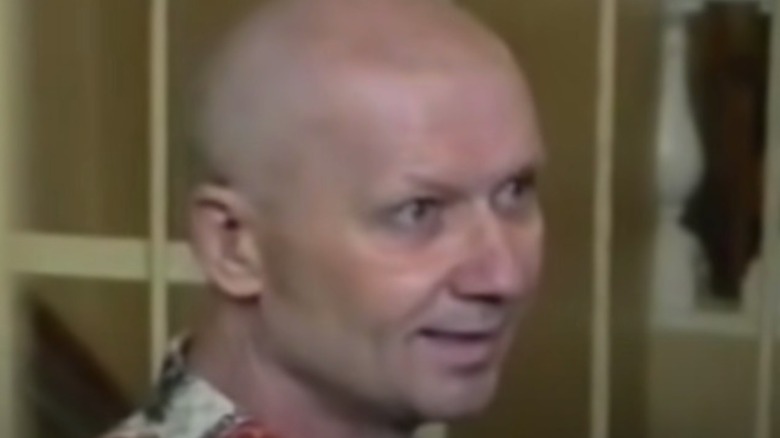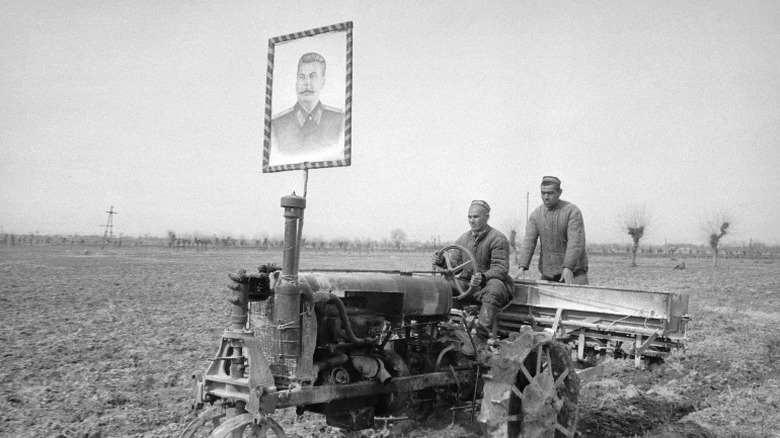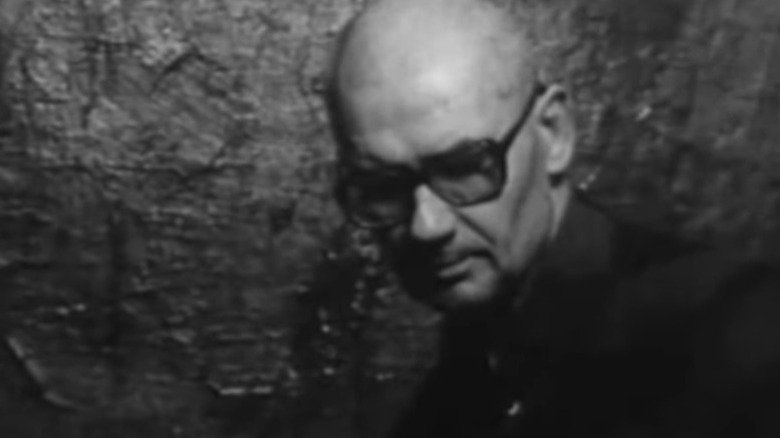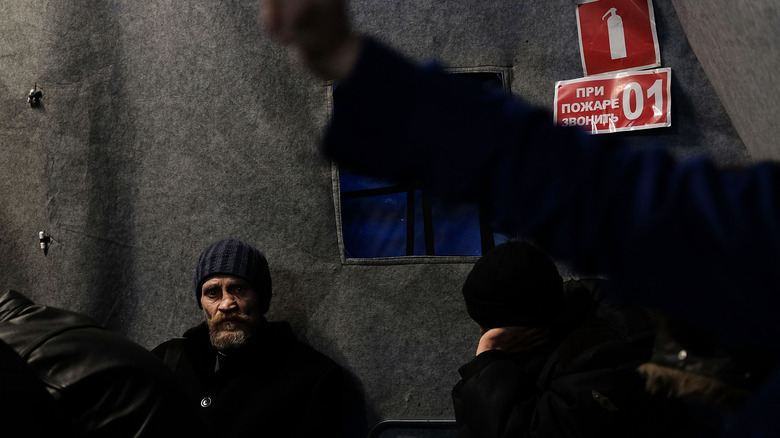Andrei Chikatilo's Chilling Motivation To Kill
While the vast majorities of murders in this world share motives that range from revenge to financial gain, the motives behind serial murderers are a bit more complicated. Most serial killers murder for their own sets of motives that are unique when compared to everyday murders. Some, like Ted Bundy, have hatred toward a specific gender. Others, as in the case of child killer John Wayne Gacy, were sexually aroused when they tortured and murdered their victims (per Monsters and Critics).
No matter the motive, some monsters that walk among us have managed to exceed the minimum threshold of being technically classified as serial murderers — which is two or three victims in "separate events" depending on whose definition you use, per the FBI. In the case of Russian Andrei Chikatilo, that threshold was surpassed nearly twentyfold. When he was convicted in 1992 Chikatilo was found guilty of 52 murders, though he had confessed to as many as 56. Even though many serial killers will set their sights on one gender, Chikatilo wasn't picky, killing almost as many males as females, many of them young. For over 20 years, the "Butcher of Rostov" stalked the train stations and city streets for his prey before he was finally caught in 1990.
Chikatilo had a brutal childhood
What the children of Ukraine had to endure during the 1930s is almost unspeakable. Under the newly anointed dictator Joseph Stalin, small family farms had been forcibly eliminated, replaced with state-controlled farming collectives. This created a widespread famine across the country, and those who rebelled against it were met with harsh punishments (via History). This period in Ukrainian history is referred to as the Holodomor, a term that combines the words "starvation" and "inflicting death" from the Ukrainian tongue. The estimated death toll of this dictator-made famine is 3.9 million, which was 13% of the population of Ukraine at the time.
Suffering through the Holodomor was Chikalilo and his family. With stories of starving neighbors haunting his imagination at a young age, he grew up in a country that had the real nightmare of Nazi bombing raids during WWII. And if the poverty and trauma weren't enough, Chikatilo was believed to have suffered from hydrocephalus from birth (via Biography). This condition, known as "water on the brain" most likely led to adolescent bed-wetting, as it impacts the urinary tract. His condition may have also led him to be mostly impotent, a source of terrible embarrassment for him throughout his teenage years and his adult life.
Despite the adversity he was facing, he was of above-average intelligence and grew into a young man who made every attempt to have an adult life. He married, and though impotent did manage to have two children. He also became employed as a teacher.
Chikatilo used murder as a psychological relief
The teaching years didn't go the best for Chikatilo. Student complaints of him bullying them began to surface, which would later escalate to some of them accusing their teacher of various forms of assault. Biography tells us that these accusations kept him moving from school to school before he finally settled into a community outside of the city of Rostov, where he was employed as a teacher at a mining school in 1978. It was in this area that he committed the first of more than four dozen murders.
Over the next 12 years, authorities in the Rostov were finding severely mutilated bodies, many of which were abandoned in wooded areas. Knowing they had a serial killer on their hands, they began focusing their efforts on his capture.
In 1990, they finally got their break after one police officer noticed a man covered in mud, leaves, and blood at a train station. While there wasn't enough evidence to arrest him, the officer took his information and made an official report. Chikatilo was put under surveillance and later arrested. He confessed to multiple murders shortly after he was brought in for questioning, and the police were curious about his motive. He later revealed that he killed as a form of psychological relief, one he couldn't get any other way (via Listverse).
A 'Mistake of Nature'
Being sexually frustrated his entire adult life, Chikatilo was without a normal outlet for relieving frustration. But his impotence was only one factor in his misery. Listverse talks of his being unsatisfied and disappointed with the life he wound up having, with him stating "I dreamed of a big political career and ended up with this nothing life." He would see sex workers and transients, and become immediately jealous and enraged, as they somehow reminded him of his failures.
Thought Catalog offers another explanation for his motive. They note that Chikatilo was a devout Communist and viewed the murders as his contribution to getting rid of those he felt weren't fit to live in Russia. In his mind, Chikatilo was making his country a better place by "slaying street degenerates. He imagined himself heroic, defending the motherland's honor in a one-man guerrilla war."
Chikatilo was sentenced to die following his trial. This punishment was carried out by a single bullet to the head on February 14, 1994. According to Listverse, Chikatilo once said, "I know I have to be destroyed. I understand. I was a mistake of nature."



